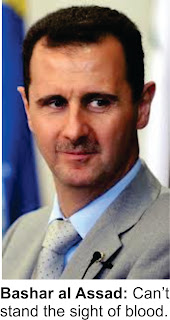During that period around BC and AD there was a young man named Saul, born in the Middle Eastern city of Tarsus whose great intellect was recognised at an early age. His father, a wealthy merchant, saw that his son was well educated, getting the most noted teacher the Jews had ever possessed, Gamaliel, to privately tutor him. Saul became steeped in Judaism, the religion of the Jews. About that time an outspoken thirty-three-year-old had been crucified for daring to proclaim that he was the Messiah and Saul was incensed that despite his death he seemed to be gathering followers at an alarming rate who were joining a faction called “The Way.”
Saul sought high priest judiciary powers to pursue this “blasphemous” sect and often stood by while followers were stoned to death for what he perceived to be misplaced faith.
On the road to Damascus to seek out disciples of The Way who were growing exponentially in that city he was struck down by an intense white light and a voice came from the presence of the light saying “Saul, Saul, why persecutest thou me?” As Saul looked upon the radiant figure he asked, “Who art thou, Lord? And the answer came, “I am Jesus, whom thou persecuteth.” Saul was blinded by the light, but three days later in a house in Damascus he was “illuminated from within” and his sight was restored.
Saul changed his name to the Roman rendering of it, Paul, at about the same time “The Way” became known as “Christianity” and Paul the apostle or Saint Paul became its greatest advocate. He wrote most of the books of the New Testament and his words of wisdom are still heard to this day and are constantly espoused at church services and funerals.
His enchanting treatise on love is regularly read at weddings.
People who have a dramatic conversion to Christianity are often said to have had a “Road to Damascus” experience.
The road to Damascus, once paved with good intentions, would be a somewhat different experience in the 21st century. Journey down that road today and you might find yourself dodging bullets or inhaling deadly sarin gas.
The Middle East is a powder keg and the civil war in Syria is its likely fuse.
Bashar al Assad is a complex character. Even if he did assault his people with chemical weapons, which is possible, but not certain, his troops have still managed to kill 100,000 of them conventionally anyway.
The rebels are malcontents and overwhelmingly Sunni Muslims. The Assad family is of the Alawite persuasion that follows the Shi’ite interpretation of the Muslim faith and are aligned to the Ba’ath party. Syria is 70 per cent Sunni.
This is a sectarian war and has been brewing in Syria for decades.
Tensions started back in 1980 when the Syrian branch of the Muslim Brotherhood attempted to kill Bashar’s father Hafez, then the country’s president. Two years later Hafez struck back and the entire Brotherhood leadership was liquidated and so too were their families. It is believed up to 30,000 men, women and children were slaughtered in the rout.
Bashar was just 15 at the time and was never intended that he would lead his people after his father’s death. His older brother Bassel was the chosen one and Bashar, who was recognised as the weakest link in the family and had a chin to emphasise this, went to university in Damascus and was then sent to England by his father to study medicine.
According to those who knew him at university, Assad was a middling student, introverted, stubborn and moody. Ironically, it is said he can’t stand the sight of blood and so instead of studying general medicine he opted to become an ophthalmologist, enrolling at London’s Western Eye Hospital.
Meanwhile Bassel was killed in a high speed car crash while driving to Damascus airport in 1999.
British author Patrick Seale, an old Assad family friend, said after Bassel’s death Hafez attempted to instil in his second son, then only 28, the leadership qualities he felt Syria would need. “Bashar proved largely inept. Hafez was desperate to influence and train Bashar as a leader, but he was never the right type,” says Seale. The young doctor was awkward and lacked the common touch to win the loyalty of the population. “He was and still is a terrible public speaker. He blathers on in an uncontrolled way and loses his audience quickly,” says Seale.
And so this moody, introverted, stubborn, blathering individual potentially holds the fate of the world in his soiled hands.
In Armageddon-like circumstances the two sides are neatly lined up. Iran, Russia and China on one side, with North Korea probably itching to join the fray, and the Western Alliance on the other.
Not unlike the situation that triggered the “war to end all wars” nearly 100 years ago.
What we need is a modern-day Saul of Tarsus.











0 comments :
Post a Comment